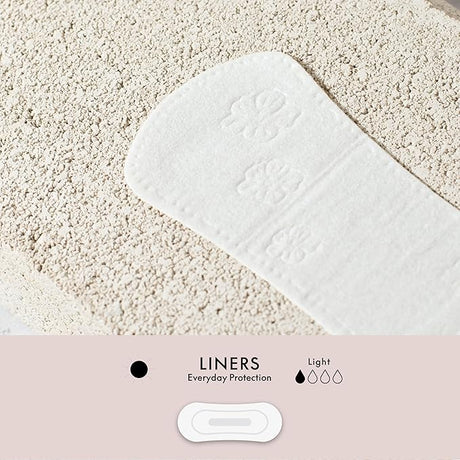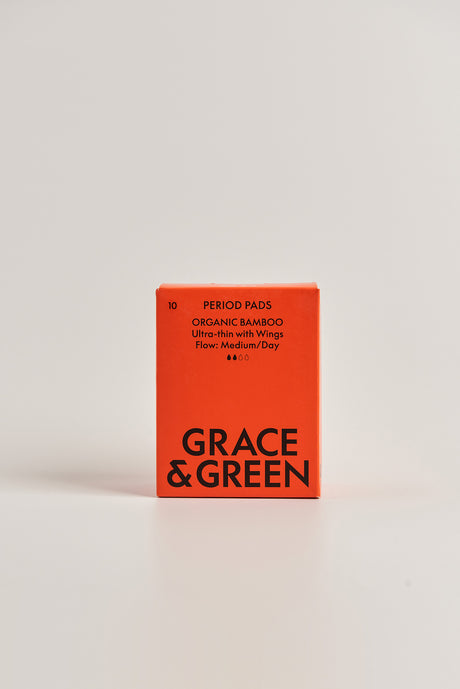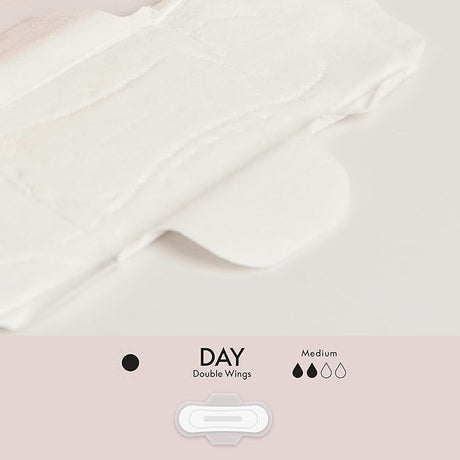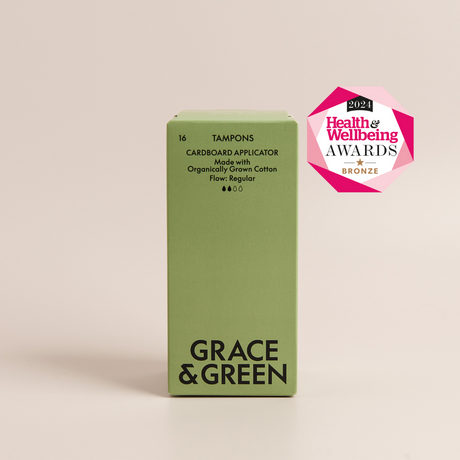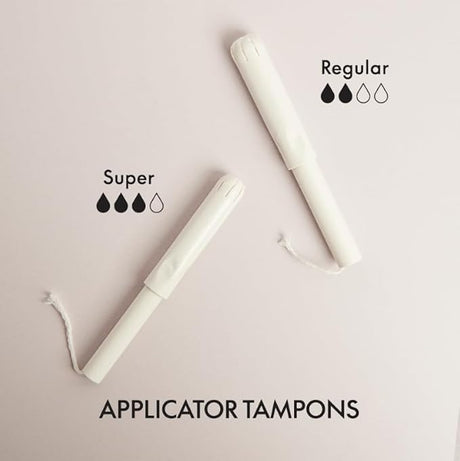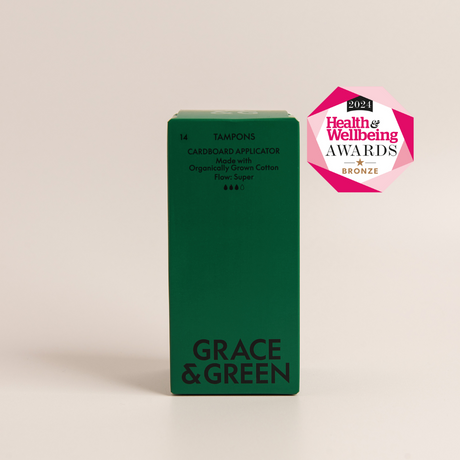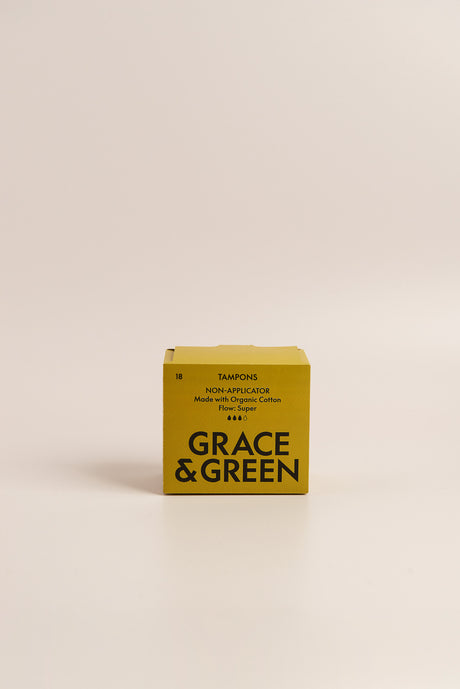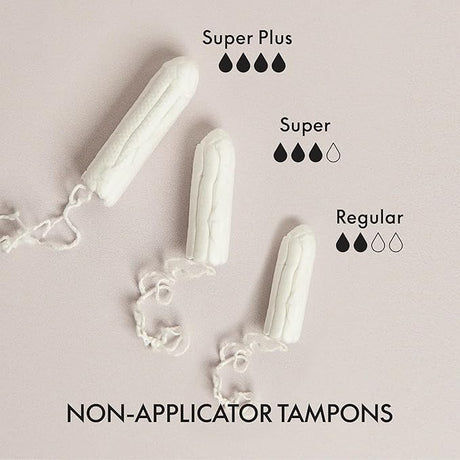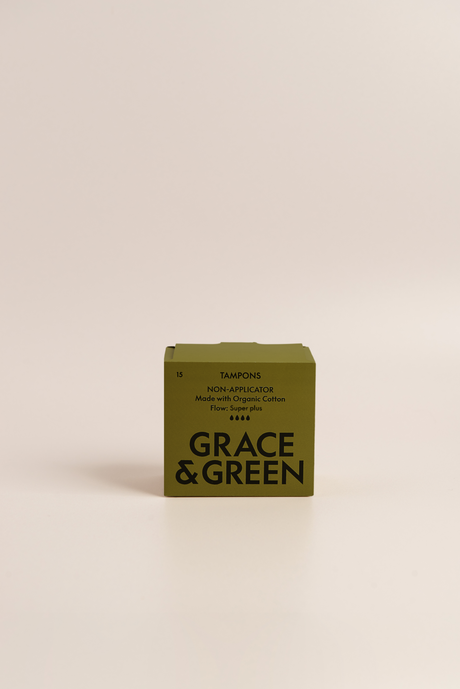Navigating periods in the workplace is awkward and despite many team members having similar experiences, it’s often avoided. But why is this and what can we do about it?
Naturally, there’s a certain amount of sensitivity when it comes to talking about your period with co-workers. It’s a little different to the ‘what did you do over the weekend?’ and ‘have I just ruined that spreadsheet for everyone?’ chat. Despite this, it is important to discuss your menstrual health in the workplace as for a lot of people, it hugely affects your working day. From brain fog to cramps, your work and wellbeing is likely to be affected and it’s often unavoidable.
This guide outlines the do’s and don'ts for discussing menstruation at work respectfully and actionable steps toward creating a menstruation-friendly environment for everyone.
Why Talking About Periods at Work Still Feels Awkward
There has been significant progress in health and workplace equality but there is still work to be done. Even the mention of the word period in the office is enough to trigger an awkward silence. Cultural norms, lack of education and discomfort around menstruation are all wider issues that contribute to the stigma. Many employees will be managing painful periods, heavy bleeding, fatigue, or menstrual health conditions in silence.
This separation affects morale, productivity and employee wellbeing, on top of how you may be feeling physically. Acknowledging menstruation as a natural process is the first step toward a more inclusive, respectful workplace culture.
What Employees Need From Menstruation-Friendly Workplaces
A menstruation-friendly workplace is about far more than providing free period products (although this is a great step), it’s about creating an environment where employees can talk about their menstrual health experiences without any judgment or embarrassment. Beyond conversation, policies are needed to support those dealing with symptoms.
Key employee needs include:
-
Normalised conversations about period pain and health.
-
Flexible leave or work-from-home options.
-
Access to clean facilities and sanitary products.
-
Managers trained with knowledge and empathy.
When employers meet these needs, everyone benefits as trust and understanding increases
Do: Use Clear, Inclusive Language About Menstrual Health
Using respectful, inclusive language helps break down shame and stigma surrounding periods. Not everyone who menstruates identifies as female, so it’s important to avoid gendered assumptions.
What Inclusive Period Conversations Sound Like
-
“If you're experiencing menstrual cramps or discomfort, feel free to take a break.”
-
“Our workplace provides menstrual products in every restroom.”
-
“Employees can use health leave for managing menstruation-related symptoms.”
Avoid euphemisms like “that time of the month” or jokes that trivialize the menstrual cycle like the classic “are you on your period?” in response to stern conversations. Clear communication around period health avoids making anyone feel uncomfortable and curates an understanding work environment.
Don’t: Make Jokes or Minimise Someone’s Experience
Casual, off-hand jokes about PMS, period pain, or mood swings are offensive and dismissive, even if this isn’t your intention. Comments like “Are you due on?” or “She’s probably just hormonal” reinforce harmful stereotypes and discourage open dialogue. This will further isolate employees who are struggling and minimise their experiences. Many really struggle with their cycle and telling someone to “tough it out” invalidates real medical symptoms and conditions such as adenomyosis, endometriosis or PCOS just to name a few. Respecting colleagues’ experiences, even if they differ from your own, builds an open and understanding workplace.
Do: Know the Company’s Period Leave or Health Policies
Understanding your workplace's period policy is key when supporting team members and advocating for yourself. Some companies offer specific menstrual leave, while others include it under general sick leave or wellness policies.
Talking About Period Leave Without Shame
When discussing period leave or adjustments, normalise the conversation and directly say “I’ll be working remotely today due to menstrual pain” rather than skirting around the word “menstrual” or “period”. There is no reason to feel embarrassed or ashamed and using the right words helps to de-stigmitise periods. The same goes for managers who are speaking about policies, use the correct words. There is no reason not to. Transparency in policies empowers employees to make use of them without guilt.
Don’t: Assume Everyone’s Experience Is the Same
Menstruation is not a one-size-fits-all experience. Some have light periods with minimal discomfort, others endure heavy bleeding, severe cramps, and related conditions like PCOS or endometriosis.
Avoid projecting your experience onto others. Instead, listen and respond with empathy. Recognise that what might be a manageable inconvenience for one person could be a debilitating health issue for another. This is not to say that you shouldn’t relate to each other but if someone is confiding in you, it’s important not to speak over someone else’s experience.
Do: Offer Support Without Being Intrusive
If a colleague opens up about their menstrual health, offer support respectfully and professionally.
How to Respond to a Colleague’s Disclosure
-
Validate their experience: “That sounds really tough. How can we help you?”
-
Respect privacy: Avoid asking invasive questions about symptoms or cycle details when they haven’t offered that information themselves.
-
Provide flexibility: Offer adjustments like schedule shifts, remote work, or extended breaks.
Creating a supportive workplace doesn’t necessarily require deep personal discussions, it’s about offering practical help without judgment.
Don’t: Dismiss Symptoms Like Pain or Heavy Bleeding
Heavy periods and period pain aren’t just minor nuisances, they can be physically and emotionally exhausting. Ignoring or downplaying symptoms can lead to higher absenteeism and reduced engagement. Having flexible working policies avoids this and allows employees struggling to work without stressing about strict working hours.
Addressing Heavy Periods and Productivity
Supporting menstrual health isn't about special treatment, it’s about equal opportunity to perform optimally. To do this you can:
-
Allow work-from-home days to manage symptoms
-
Offer employees sick days when symptoms are severe or for those with chronic conditions.
-
Reassure employees that their well-being comes before deadlines.
-
Have sustainable period products accessible in employee bathrooms.
Tips for Managers: Supporting Staff With Period Pain
As the first point of call for their employees, managers have a unique responsibility of empathy and action.
Best practices for managers include:
-
Checking in regularly with affected staff and offering flexible work options. This may include adopting a menstrual leave policy, many employees are probably wondering: can I leave work because of my period?
-
Making team policies clear and accessible.
-
Creating a non-judgmental atmosphere where employees can request adjustments.
By validating staff needs and respecting boundaries, managers build trust and improve team performance. It’s not about grand gestures or needing to completely understand exactly how your employee may feel, instead it’s about creating an empathetic and understanding environment. Simply being open-eared to your team will be appreciated.
How to Create a More Period-Friendly Work Environment
Small changes can have a big impact on employees experiencing period pain or other menstrual symptoms.
Small Changes That Make a Big Difference
Creating a menstruation-friendly workplace doesn’t always require sweeping policy changes or major investments. It's the subtle, thoughtful shifts in day-to-day operations that make the most significant impact. By understanding your menstruating employees, allowing flexibility and providing support, employers can help reduce the stigma surrounding menstruation and improve comfort and productivity for those affected.
Simple Workplace Adjustments That Support Menstrual Health
-
Provide free period products for staff to prevent the fear of being “caught short”, especially for those with menstrual disorders that cause irregular and unpredictable cycles.
-
Install waste disposal bins in each stall.
-
Stock period products in all bathrooms, not just women's. Everyone who bleeds has a right to period products, this is not limited to those who identify as a woman. Many trans-men and non-binary people have periods too.
-
Offer quiet rooms or wellness spaces.
-
Allow flexible working and break times without requiring medical documentation. Employees experiencing period pain or fatigue may benefit from flexible scheduling or remote work options. These choices show trust and empower staff to manage their health. It’s important not to demand an official diagnosis in this case. Those with suspected conditions can be waiting for up to 9 years to receive diagnoses and a lot of people experience discomfort due to their periods even without a long-term condition.
-
Offer relevant training for employees and managers to understand the menstrual cycle and relevant health conditions.
Real Examples of Positive Period Conversations at Work
Real-life conversations about periods can help to model behaviour to the rest of the team, particularly those who do not feel confident partaking in these discussions. This is where relevant training would be helpful but if this is not possible, simply speaking openly and honestly about menstrual cycles is likely to have an effect on the more cautious members of your positive period team. These moments have a ripple effect, making period talk more accepted and less awkward.
You may open conversations like:
-
“We’ve stocked period products in the bathroom for all employees who need them.”
-
“If you need to adjust your schedule today, that’s totally okay.”
-
HR introducing new menstrual health guidelines within official policy.
When to Raise Menstrual Health in HR Discussions
Employees may need to bring up menstrual health with HR if:
-
They require ongoing adjustments for menstrual health conditions.
-
Existing policies don’t support menstrual leave or flexible options.
-
They’ve experienced discrimination or insensitivity related to periods.
Tips for HR conversations:
-
Come prepared with documentation or a doctor’s note, if needed.
-
Suggest policy changes using evidence or case studies.
-
Stay calm and professional while advocating for support.
When HR takes menstrual health seriously, it validates the lived experiences of employees and fosters inclusivity.
Long-Term Benefits of Normalising Period Talk at Work
Normalising conversations around periods at work has long-term benefits for businesses:
-
Improved employee morale: People feel seen and supported.
-
Reduced absenteeism: With accommodations, fewer people need to miss work.
-
Stronger team dynamics: Open communication strengthens relationships.
-
Attraction and retention: Especially for those with reproductive health conditions. If they are in a supportive environment that works for their health, they are likely to stay.
Menstrual health is a part of overall well-being and physical health that employers can no longer afford to overlook.
Creating Change: The Role of Employers in Menstrual Equity
Employers play a powerful role in advancing menstrual equality in the workplace. Ensuring all employees have fair access to menstrual health resources and workplace accommodations is the bare minimum. At Grace & Green, through our Period Dignity scheme, we provide organic period products to businesses who would like to support their employees when they need it and provide the educational resources to shift the work place culture to an inclusive and understanding place for all who bleed.
Key steps include:
-
Reviewing and updating policies to include menstrual health.
-
Educating leadership on reproductive health issues.
-
Providing free menstrual products and flexible health leave.
-
Promoting inclusivity in all internal communications and training.
Talking about periods at work doesn’t have to be awkward or controversial. With the right language and inclusive practices, businesses can create a culture where menstrual health is understood, respected, and supported. By following these do’s and don'ts, your workplace can approach taboos, support employees more effectively, and ultimately become a respectful and functioning space for everyone. Ethical period care for everybody starts from the conversation to one of our many choices of sustainable menstrual products.



